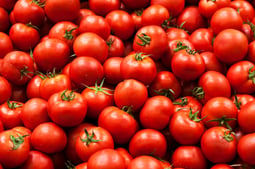Originally published : Mon, November 14, 2016 @ 9:31 PM
Updated : Wed, January 18, 2017 @ 2:13 PM
Many areas critical to improved agricultural production require robust and scalable genotyping  platforms to enable the mapping of traits in plants and livestock as part of marker assisted selection (MAS) and marker assisted breeding (MAB) programmes.
platforms to enable the mapping of traits in plants and livestock as part of marker assisted selection (MAS) and marker assisted breeding (MAB) programmes.
Such programmes have helped improved drought, frost and parasite resistance in plants and improved yields.
Historically, these projects have involved the sequencing of parental genotypes using whole genome shotgun (WGS) sequencing. However, this can prove prohibitively expensive and resource intensive due to the complexity of sequencing de novo genomes.
In contrast, genotyping by sequencing (GBS) is a unique and cost-efficient technique developed and patented by Keygene, which reduces the genome complexity to certain regions which can be sequenced for a large number of samples.
According to Wolfgang Zimmermann, Sequencing Business Manager, Genomics, LGC - the scale of the efficiency increase is hard to comprehend; GBS delivers a large number of the useful SNPs in all samples of an analysed batch at just 1% of the cost – significantly opening up new applications and species.
Having secured a license for the commercial offering and use of GBS technology across all species and geographies, our sequencing experts have been working hard to further optimise the technique. This has led to the development of a self-tuning variant of the GBS technique (normalised GBS, or nGBS) that enhances the efficiency of the process and ensures selected loci are reliably sequenced across large sample batches using next-generation sequencing (NGS).
nGBS makes use of a normalisation process developed by LGC to exclude sequences for conserved repeats that code for organelle such as chloroplasts and mitochondria. This normalisation process is applicable to any genome regardless of size, methylation pattern, and type as well as abundance of repetitive elements.
This enables deeper sequencing of the remaining DNA and increases the number of single nucleotide polymorphisms (SNPs) identified from around 15,000 to up to 50,000.
Following a bioinformatics analysis, these SNPs can then be used to develop genotyping arrays or PCR- and KASP- based panels for downstream applications.
Zimmermann was keen to stress that if high quality DNA can be extracted then the technique can be used for nearly any species. Fortunately, LGC’s DNA extraction group have made a name for themselves extracting purified high molecular weight DNA from even the toughest of samples.
To learn more about LGC's GBS services, and to downlown our latest application note visit here.

